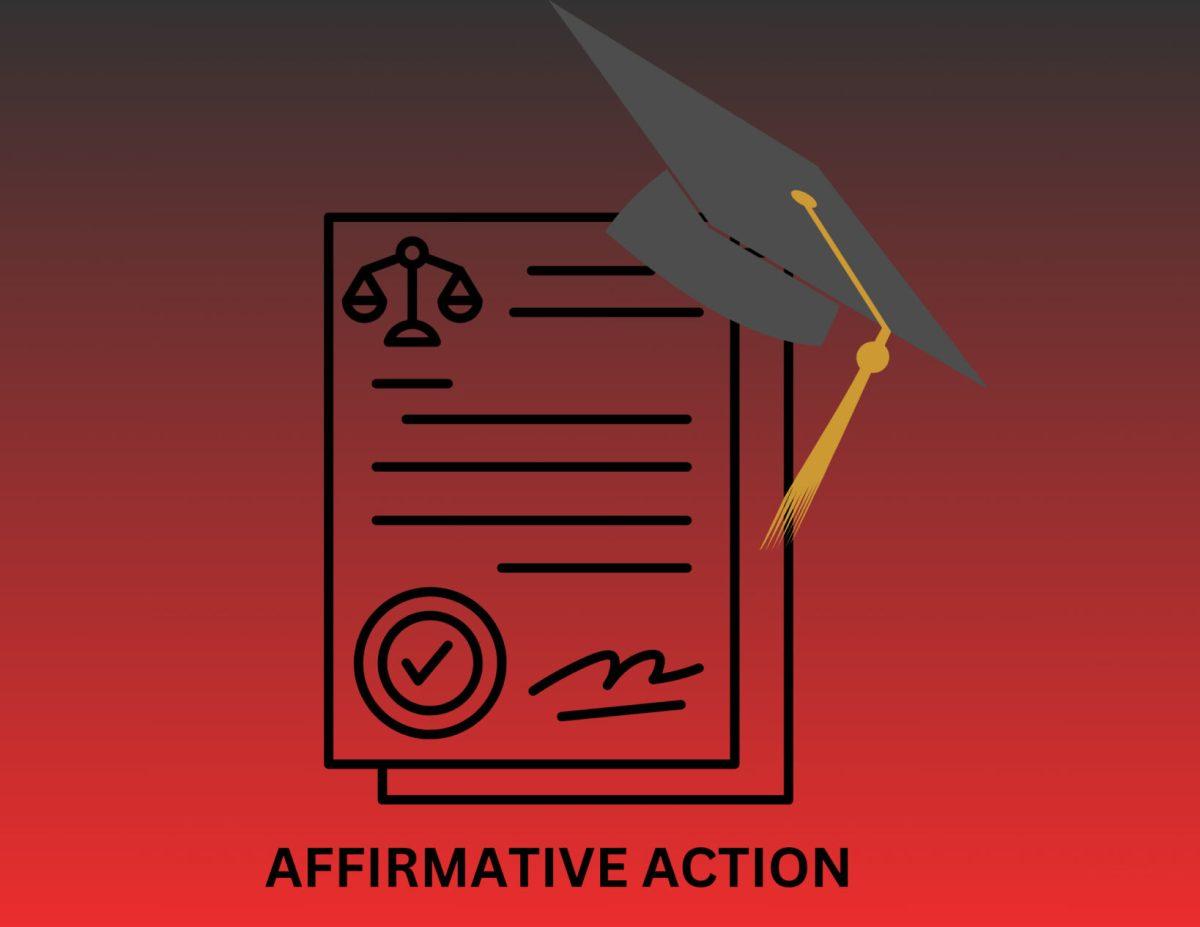In June 2023, 45 years after the Supreme Court allowed universities to give limited consideration to race in their admissions processes, the Court reversed its position on the issue, effectively outlawing the practice known as affirmative action.
In separate lawsuits, the organization Students for Fair Admissions sued Harvard and UNC-Chapel Hill, arguing that UNC-CH’s race-conscious admissions violated Title VI of the 1964 Civil Rights Act. UNC-CH and NC State are both part of North Carolina’s public university system, but the decision impacted all U.S. universities.
Lindsay Gentile, director of graduate admissions, said it was a big undertaking to adjust the application process to the Supreme Court’s decision. Gentile said one of the biggest points was the personal statement essay prompt, in which they ask the applicant to tell them more about themselves.
“There were not any [questions] that specifically wanted someone to talk about their race; it was more about questions around diversity, and how someone’s experience might help shape the diversity on campus,” Gentile said. “Things like that had to be changed.”
Gentile said it does not harm the applicant if they decide to talk about their race in a personal essay when they are, for example, asked to talk about a time they overcame an obstacle.
“There is nothing against them providing information,” Gentile said. “That can’t be the sole factor that is used by the reviewer in determining whether or not to admit someone.”
Gentile said information the applicant gives about their race is no longer available to the person reviewing the application.
“If someone wants to indicate their race, they can, they don’t have to, and that’s always been there,” Gentile said. “We had to hide race, so they could no longer see it on the application, no longer run a query to find applicants based on a certain race or something like that.”
In doing so, NC State is following the guidelines the UNC System set forth after the Supreme Court ruling. These guidelines state UNC System universities must “move aggressively towards race-blind applications.”
The guidelines specify campuses should conceal knowledge of an applicant’s race from those who are reviewing and evaluating the applications in the short term.
“In the longer run beyond the immediate admissions cycle, campuses should remove the race box from the application process entirely unless the campus can identify a clear, discrete legal need to continue to include the race box,” the guidelines read.
If a campus identifies such a need, the guidelines state, “For continued use of a race box on its application in the longer run, campus officials should discuss the perceived need with the leadership of both the campus and the UNC System.”
Joy Gaston Gayles, department head of educational leadership, policy and human development, researches on diversity in higher education. Gayles said she thinks not collecting data about applicant’s race would be repressive legalism — when the dialogue surrounding new laws results in policy changes going above and beyond their requirements — because the Supreme Court’s decision does not prohibit the collection of data about applicant’s races, but the use of it.
“You can hide it behind a firewall and share it after the admissions cycle is complete,” Gayles said. “But we need the data so that we can see what’s happening with our student body.”
Gentile said she does not think there was a big change in who graduate admissions accepts after the Supreme Court’s decision.
“For the people internally, it was a big change,” Gentile said. “I don’t think for our applicants it was a huge change.”
What is true for graduate admissions is not necessarily true for undergraduate admissions. Gentile said because those outside of the U.S. do not necessarily use the same racial categories, and 60% of applicants to NC State’s graduate schools are international, race is not typically considered a factor in graduate admissions.
“We’re decentralized, so the people who are in the program office are the ones who are deciding who they want to admit,” Gentile said. “That’s how we’re different from undergraduate admissions.”
The Office of Undergraduate Admissions and the Office of General Counsel declined to comment.
The UNC System has faced criticism for going further in implementing the Supreme Court’s decision than is required.
One of these critics is Gene R. Nichol, a law professor at UNC-Chapel Hill. In an email statement to Technician, Nichol said he believes the Board of Governors is happy UNC-CH lost the case.
“We’re not supposed to say we want a diverse community here because the Republican legislature and their lickspittle on the Board of Governors don’t want a diverse university or commonwealth,” Nichol wrote. “So these guidelines go farther than the Supreme Court ruling requires because the Board is anxious to go even farther than the Supreme Court did to erase aspirations of full and effective integration of these institutions. They’re anxious to build a bridge to 1953.”
In an email statement to Technician, a UNC spokesperson gave the following comment.
“The UNC System, like all universities, is obliged to comply with the United States Supreme Court,” the statement read. “President Hans has repeatedly and emphatically expressed his support for campus diversity. You can read his remarks to the Board on the importance of diversity here. That’s why he has supported an eight-year freeze on tuition hikes for in-state students, stronger financial aid funding, accountability measures to reduce student debt, which disproportionally burdens minority students, and vastly more support for student mental health and wellbeing. All of these efforts make our campuses more welcoming, more vibrant places for students of all backgrounds.”













